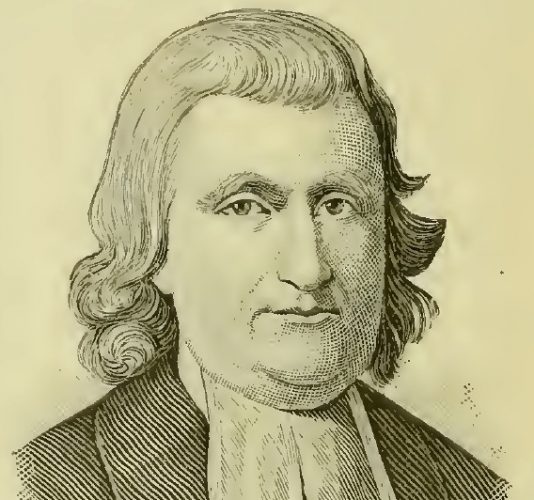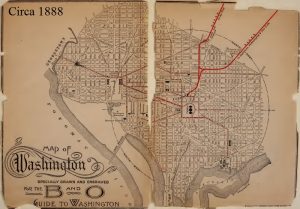 Because of the current presidential and other federal elections, news is continually coming out of Washington, which is a city established early in the history of the United States. In 1790, the First Congress was debating and deciding issues such as buying land for what became the U. S. Military Academy at West Point, providing financially for those widowed by the Revolution, setting up the post office and its post roads, determining how to pursue relations with foreign nations, establishing shipping duties and maritime laws, and paying for the great debt that had been incurred during the Revolution. It was a critical time with many decisions to be made; the fortitude, patience, and determination of the early leaders as they worked to build a constitutional government from the ground up is sometimes forgotten. One of the key issues for decision involved whether or not a city for the national government should be either picked or newly constructed, or for that matter, exist at all. Indicative of the controversy about the seat of government was the difficulty with which Congress determined where it would hold its next meeting due to the sectional interests that often occupied the front burner no matter what the issue may have been.
Because of the current presidential and other federal elections, news is continually coming out of Washington, which is a city established early in the history of the United States. In 1790, the First Congress was debating and deciding issues such as buying land for what became the U. S. Military Academy at West Point, providing financially for those widowed by the Revolution, setting up the post office and its post roads, determining how to pursue relations with foreign nations, establishing shipping duties and maritime laws, and paying for the great debt that had been incurred during the Revolution. It was a critical time with many decisions to be made; the fortitude, patience, and determination of the early leaders as they worked to build a constitutional government from the ground up is sometimes forgotten. One of the key issues for decision involved whether or not a city for the national government should be either picked or newly constructed, or for that matter, exist at all. Indicative of the controversy about the seat of government was the difficulty with which Congress determined where it would hold its next meeting due to the sectional interests that often occupied the front burner no matter what the issue may have been.
Congress was meeting in New York when selection of the seat of government came before the Senate for action, May 31, 1790. Pierce Butler of South Carolina presented the first reading of a bill providing for “the permanent seat of Congress and the Government of the United States.” The second reading was docketed for the next day, but on that day the reading was postponed to the following day. As docketed, it was read and committed to a committee including Butler, Samuel Johnston of North Carolina, John Henry from Maryland, Richard Henry Lee from Virginia, and Tristram Dalton from Massachusetts. The committee requested to have the number of members increased, possibly due to sectional deadlock, but the Senate denied the request. On Monday June 7, Senator Butler reported to his colleagues for the committee but action was delayed until the next day. On Tuesday, a location on the eastern or northeastern bank of the Potomac was proposed, but a substitute motion asking “whether it be expedient, at this time, to determine upon any place for the permanent seat of the Government of the United States” received a vote of twelve “yeas” and twelve “nays” leaving the deciding vote of “nay” to Vice President John Adams. The issue of the seat of government came to the floor again with debate continuing, votes taken, modifications adopted, and postponements until on July 1, 1790, fourteen “yeas” defeated twelve “nays” resulting in the Senate’s passage of “An Act for Establishing the Temporary and Permanent Seat of the Government of the United States.” The temporary seat was to be Philadelphia for a period of ten years, 1790-1800, until construction of the seat of government was completed. The bill was carried to the House of Representatives seeking concurrence. After debates, postponements, amendments, and proposals of other locations, the House passed the bill by a vote of 32-29, Friday, July 9, 1790, and then President Washington signed the bill into law, July 16. Thus, the city of Washington began with a victory by two votes in the Senate, three votes in the House, and one presidential signature.
Under the pseudonym of “X. Y.” a member of the Continental Congress, 1776-1782, and the only minister to sign the Declaration of Independence, John Witherspoon (1723-1794), wrote an article titled with one of the those long eighteenth-century names, “A Few Reflections Humbly Submitted to the Consideration of the Public in General, and in Particular to the Congress of the United States.” It is transcribed below from pages 212-219 of The Works of John Witherspoon, D.D., Sometime Minister of the Gospel at Paisley, and Late President of Princeton College, in New Jersey…[etc.], Edinburgh, 1805. In his works, each page header for the article has, “On The Federal City.” Unfortunately, the original publication from which the article was taken for inclusion in Witherspoon’s works was not cited.
Dr. Witherspoon enjoys the unique distinction of not only having political concerns for his new homeland as an immigrant from Scotland, but more importantly he was first of all a Presbyterian minister and at the time of the writing of his article he was the president of what is today Princeton University. With respect to his leadership in the Presbyterian Church, he was a member of the committee selected to compose the first constitution for the denomination which was patterned after the one used in his native Scotland. When the First General Assembly of the Presbyterian Church in the United States of America assembled in the Second Presbyterian Church, Philadelphia, May 21, 1789, he convened the meeting 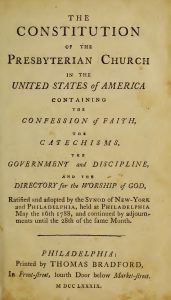 and preached his sermon using the biblical text 1 Corinthians 3:7, “So then, neither is he that planteth anything, neither he that watereth: but God that giveth the increase.” The assembly then elected John Rodgers of New York to be the first moderator. Dr. Witherspoon was not elected moderator during his few remaining years of life. It may be that he was honored as convenor of the first assembly, a service requiring a relatively short stint on the podium, because of his declining health which by about 1791 would include blindness. When John Witherspoon died in 1794 his good friend in the ministry, John Rodgers of New York, delivered a sermon on Matthew 25:21 to the Princeton College Board of Trustees that included a biographical sketch. Dr. Rodgers commented that above Witherspoon’s educational, political, and philosophical interests, he considered the ministry his highest and greatest honor in life.
and preached his sermon using the biblical text 1 Corinthians 3:7, “So then, neither is he that planteth anything, neither he that watereth: but God that giveth the increase.” The assembly then elected John Rodgers of New York to be the first moderator. Dr. Witherspoon was not elected moderator during his few remaining years of life. It may be that he was honored as convenor of the first assembly, a service requiring a relatively short stint on the podium, because of his declining health which by about 1791 would include blindness. When John Witherspoon died in 1794 his good friend in the ministry, John Rodgers of New York, delivered a sermon on Matthew 25:21 to the Princeton College Board of Trustees that included a biographical sketch. Dr. Rodgers commented that above Witherspoon’s educational, political, and philosophical interests, he considered the ministry his highest and greatest honor in life.
There are a few items to note as you read the article. Witherspoon refers to the “empire” a few times when he mentions the United States. He also presents the government of Switzerland with its cantons as a model for republican government and the Dutch as a model of decentralized rule. There is a bit of Scottish wit here and there, sometimes subtle, but the article reflects Dr. Witherspoon’s concerns for the young nation.
It is suggested that before reading his article you first read the brief piece about John Witherspoon previously posted on Presbyterians of the Past.
The sources for this posting are at the end of Witherspoon’s article.
Barry Waugh
A
FEW
REFLECTIONS
HUMBLY SUBMITTED TO THE CONSIDERATION OF THE PUBLIC
IN GENERAL, AND IN PARTICULAR TO THE CONGRESS OF
THE UNITED STATES
THOUGH the following reflections come from an individual citizen, no way connected with public business, I hope they will be read with candor and attention. All good conduct proceeds from certain radical principles; and retired theoretical persons certainly may judge as well, perhaps they often judge better, of those, than such as are engaged in the bustle and hurry of an active life, or occupied in the management of particular affairs. Another circumstance which encourages me in this hope is that I intend to offer nothing but what shall be even beyond the imputation of proceeding, either from party attachment or mercenary views.
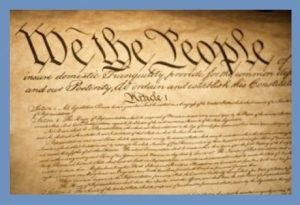 When the Federal constitution was agreed on, it was the fervent desire, and I may say the earnest prayer of many, that it might take place, and get into operation with quietness, and under the acquiescence and approbation of the public. This I think we may say has happily been the case so far as we have yet proceeded. The persons chosen to fill the houses of Congress have been generally approved. Perhaps some states, in a few instances, might have made a better choice, but upon the whole, there is little reason to complain. I remember to have heard a gentleman, well acquainted with the subject, say of the former Congress which conducted the war, that he had never known a time in which it did not contain a great plurality of men of integrity, and of those a very respectable number of distinguished abilities. I hope and believe that this is the case at present and may it always continue to be so.
When the Federal constitution was agreed on, it was the fervent desire, and I may say the earnest prayer of many, that it might take place, and get into operation with quietness, and under the acquiescence and approbation of the public. This I think we may say has happily been the case so far as we have yet proceeded. The persons chosen to fill the houses of Congress have been generally approved. Perhaps some states, in a few instances, might have made a better choice, but upon the whole, there is little reason to complain. I remember to have heard a gentleman, well acquainted with the subject, say of the former Congress which conducted the war, that he had never known a time in which it did not contain a great plurality of men of integrity, and of those a very respectable number of distinguished abilities. I hope and believe that this is the case at present and may it always continue to be so.
 The measures taken by Congress in their last session have in general given satisfaction. I am not ignorant that there have been some severe, and in my opinion petulant and insolent remarks made upon the salaries fixed for public officers, and the compensation allowed for the attendance of members of Congress, especially the last. I am of opinion, however, that they are both reasonable, and the last at least as reasonable, if not more so, than the first. I hope few persons will ever be in Congress, who devoting their time to the public service may not well deserve the compensation fixed for them based upon their character and talents. And if they have lucrative professions, or valuable private fortunes, these must be deserted for a time, and probably a loss incurred greater than the whole wages. I should also be sorry to hear of any member of Congress who became rich by the savings above his expenses. I know very well, that there have been Congressmen and Assemblymen too, who have carried home considerable sums from less wages, but they were such generally, as did more good to their families by their penury, than to their country by their political wisdom.
The measures taken by Congress in their last session have in general given satisfaction. I am not ignorant that there have been some severe, and in my opinion petulant and insolent remarks made upon the salaries fixed for public officers, and the compensation allowed for the attendance of members of Congress, especially the last. I am of opinion, however, that they are both reasonable, and the last at least as reasonable, if not more so, than the first. I hope few persons will ever be in Congress, who devoting their time to the public service may not well deserve the compensation fixed for them based upon their character and talents. And if they have lucrative professions, or valuable private fortunes, these must be deserted for a time, and probably a loss incurred greater than the whole wages. I should also be sorry to hear of any member of Congress who became rich by the savings above his expenses. I know very well, that there have been Congressmen and Assemblymen too, who have carried home considerable sums from less wages, but they were such generally, as did more good to their families by their penury, than to their country by their political wisdom.
I come now to what I chiefly intended by this short essay. Much time of the last session was spent in debates upon fixing a place for the permanent residence of Congress, and building a federal city. That matter was under the consideration of the former Congress and was fixed and unfixed I believe more than once. It always occasioned great altercation; nor was it possible to tell when it was settled, for whenever Congress changed its members, or the members changed their opinions, everything that had been done was undone. In the last meeting of the federal Congress, it seems to have been finally decided; but, either by accident or the address of some who were opposed to the decision, it was thrown open again, and is now left as unsettled as ever. I have not met with anybody who was sorry, but with many who were happy at this circumstance; and I sincerely wish that it may be suffered to sleep in its present situation at least for a considerable time, and till some other business of greater and more confessed importance shall be completely finished. I am now to give my reasons for this opinion.
(1) A determination upon that subject is not necessary. When I say it is not necessary, I mean that we are not urged to it by any pressing inconveniences or injuries which we have suffered, or are suffering for want of it. Everybody must know that it would be very expensive, and indeed I am one myself, who, if it were to be done at all, and there were buildings to be erected which should not belong to any state, but to the union, would wish that they should not be barely elegant, but magnificent, that they might not derogate from the dignity of the empire. This is not even contrary to the general principle of economy; for it has been observed, that some of the most frugal nations have been most sumptuous in their public edifices, of which the Stadthouse in Amsterdam is an example. Therefore, if the necessity were great, if the public business could not be carried on, nor the public authority maintained without it, I should be for submitting to every inconvenience—I would not be deterred even by the expense itself. But is this really the case? Does it appear to be necessary from the nature of the thing? No. The weight and influence of any deliberative or legislative body depend much more on the wisdom of their measures than the splendid facilities in which they are assembled. Does it appear to be necessary from 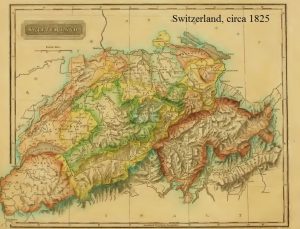 experience or the example of other nations? I think not. I can hardly recollect above one or two of the kingdoms or states of Europe, in which the capital is central, and as to confederated republics, some of them have no common capital at all. The Swiss cantons have no federal city. The different states of which this last consists have for ages, when they had occasion to meet for common consultation, held their sessions in different places. But we need go no further than our own experience. Did not the former Congress carry on the war with Great Britain, defend and secure the liberties of the United States, without a federal city? Was the want of it greatly or deeply felt as an inconvenience? I do not recollect a single complaint made in speech or writing upon the subject.
experience or the example of other nations? I think not. I can hardly recollect above one or two of the kingdoms or states of Europe, in which the capital is central, and as to confederated republics, some of them have no common capital at all. The Swiss cantons have no federal city. The different states of which this last consists have for ages, when they had occasion to meet for common consultation, held their sessions in different places. But we need go no further than our own experience. Did not the former Congress carry on the war with Great Britain, defend and secure the liberties of the United States, without a federal city? Was the want of it greatly or deeply felt as an inconvenience? I do not recollect a single complaint made in speech or writing upon the subject.
(2) It can be but little profitable. The truth is, when I attempt to recollect and enumerate the advantages to be derived from a federal city, in a central place, yet thinly inhabited, I find them very few and very small. If the American empire comes to be one consolidated government, I grant it would be of some consequence that the seat of that government and source of authority should not be too distant from the extremities, for reasons which I need not here mention. But if the particular states are to be preserved and supported in their constitutional government, it seems of very little consequence where the Congress, consisting of representatives from these states, shall hold their sessions. There is not only little profit in their being fixed and central, but perhaps some advantages might arise from their being unfixed and ambulatory. This last seems to be more suitable to the equality of rights of the several states. It is far from being an impossible supposition, that the state in which Congress should be fixed, would think itself entitled to a leading, if not a domineering influence over the other states. As to easiness of access, such is the state of this country, lying along the seacoast and having so many navigable rivers, that any city on the coast or along great rivers is easily accessible, and the difference of distance, especially when the payment is to be in proportion to the distance, is not worth mentioning. It is to be observed further that though buildings may be immediately raised for the accommodation of Congress, yet a great city, or a city of opulence and commerce, could not be raised for a long period of time. It is even uncertain whether the bare residence of Congress during their annual sessions (which it is to be hoped in a few years will be but short) independent of other circumstances, will ever raise a great commercial city at all. The Hague, though the residence of the Stadtholder, is far from being the largest, most populous, or wealthiest city in Holland. Now, I humbly conceive, that if not residence in, yet nearness to some important commercial city or cities will be found to be absolutely necessary for transactions relating to money or finance so that, if the advantages and disadvantages of a federal city on the proposed plan are fairly weighed, the latter would preponderate.
(3) There is reason to fear that it may be very hurtful. Nothing is of so much consequence to us at present as union, and nothing is so much the desire of all unprejudiced, public-spirited and virtuous men. The federal constitution is but new. It is, we hope, in use, but cannot yet be said to have taken root. It will from the nature of things take some time before it can acquire the respect and veneration necessary in every government from the body of the people, who are always guided by feeling and habit more than by a train of reasoning, however conclusive. Now, is there no reason to fear that the disputes upon this subject may produce warmth and violence, and perhaps an alienation of mind in some states against others very prejudicial to public order? The most trifling subjects of dispute have sometimes created divisions both in larger and smaller political bodies, which have ended in common ruin. If I am rightly informed, the disputes which have already taken place in Congress upon this subject, have been carried on with greater virulence of temper and acrimony of expression than upon any other that has been under their deliberation. This is not to be wondered at for it is indeed of such a nature, that it has a nearer relation to state attachments and local prejudices than any other that can be named. Perhaps in such a question it is lawful, decent, and even necessary to plead the local interest of particular states, and therefore, it is to be expected that every delegate will contend earnestly for his own state. At any rate, whatever ostensible public reasons may be devised by a fertile invention, all unprejudiced hearers will believe, that it is local attachment that guides their judgment and inflames their zeal. The only use that it is necessary for me to make of such a remark, is to show that the contention and animosity raised by this dispute will probably extend itself to every other, and that it will not be confined to the contending members in Congress, but will spread itself through all the states, whose cause they plead and whose interest they seem to espouse. This is one of those questions that had much better be decided wrong by general consent, than decided right by a small majority, without convincing or satisfying the opponents.
(4) In the last place, it is certainly at least unseasonable. Though it were possible justly to answer all the objections I have stated above, I must still say, there is a time for everything under the sun. A measure may be good in itself, and even necessary in a qualified sense, yet if there be another duty incumbent upon the same body that is better and more necessary, this surely ought to have the precedence in point of time. Now, I think it cannot be denied, and all intelligent persons in the United States seem to be of the opinion that bringing order into our finances, restoring and establishing public credit, is the most important business which the Congress has to do. It is also the most urgent in point of time, because in the interval, many public creditors are in a situation truly deplorable, whereas I can think of nobody that is suffering much for want of a federal city. The two designs are also connected together as cause and effect; I need not tell anybody which of these ought to go foremost. What a romantic project it will be to fix on a situation, and to form plans for building a number of palaces, before we provide money to build them with, or even before we pay those debts which we have already contracted? This is a matter in which not only all the citizens of America, those who are, and those who are not, public creditors, are deeply concerned, but on which will depend our future security, our interest and influence among foreign nations, and even the opinion that shall be formed of us by posterity itself.
These few reflections, not enlarged upon as they might easily have been, nor swelled or exaggerated by pompous declamation, but simply and nakedly proposed—I leave to the judgment of the impartial public, and remain,
Their most obedient,
Humble servant,
X.Y.
Sources include, as mentioned in the introduction, the Edinburgh edition of Witherspoon’s Works, which includes nine volumes. The map of Washington is from, Appleton’s Atlas of the United States, New York, 1888, and the map of Switzerland is from, A New Universal Atlas of the World, New Haven, 1825. The memorial sermon and brief biography by John Rodgers is titled, The Faithful Servant Rewarded: A Sermon Delivered at Princeton, Before the Board of Trustees of the College of New Jersey, May 6, 1795, Occasioned by the Death of The Rev. John Witherspoon, D.D., LL.D., New York, 1795, the sermon introduces the biographical comments. Information about the first General Assembly of the PCUSA is from, Minutes of the Presbyterian Church in the United States of America from its Organization A.D. 1789 to A.D. 1820 Inclusive, Philadelphia: Presbyterian Board of Publication, circa 1847. The records of the First Congress were located on U. S. Government sites such as “History, Art, and Archives, U. S. House of Representatives,” http://history.house.gov/, and several other government sites. Sometimes the links do not lead to the information expected and back tracking is required. The black and white image of the no longer extant Federal Hall in New York, 1789, showing George Washington’s inauguration is from the New York Public Library Public Domain Collection, http://digitalcollections.nypl.org/, this building is also where Congress was meeting in 1790.


